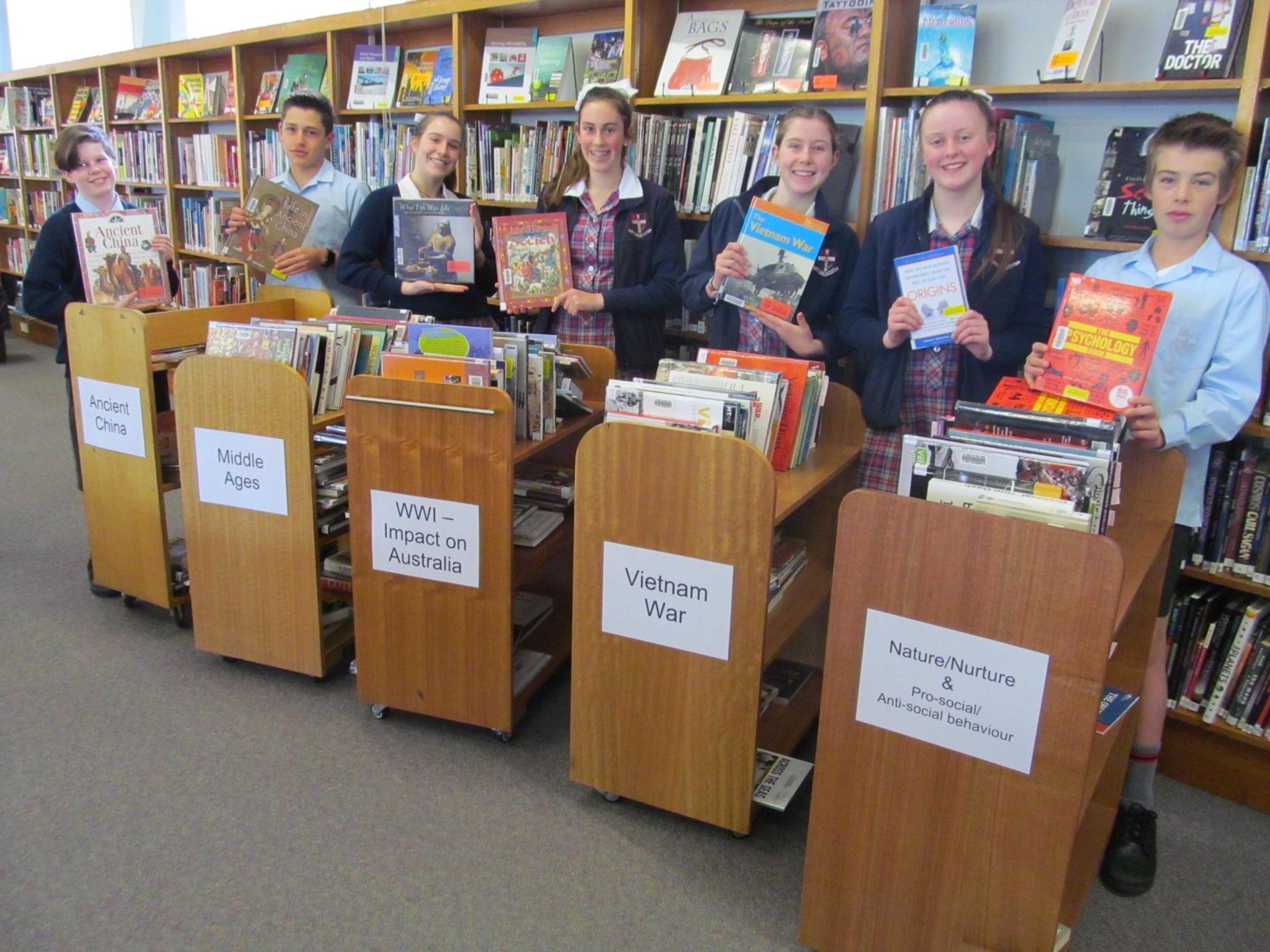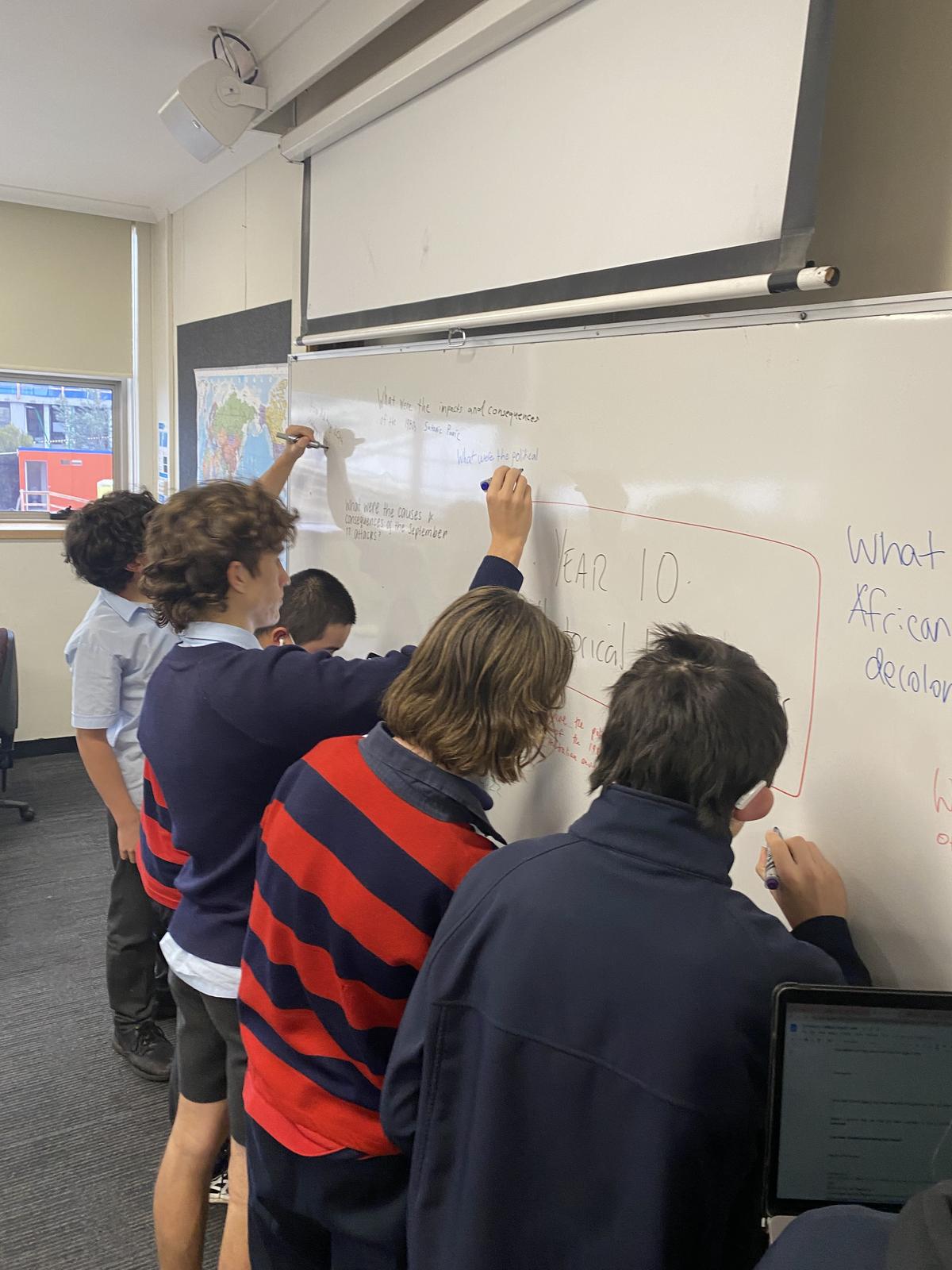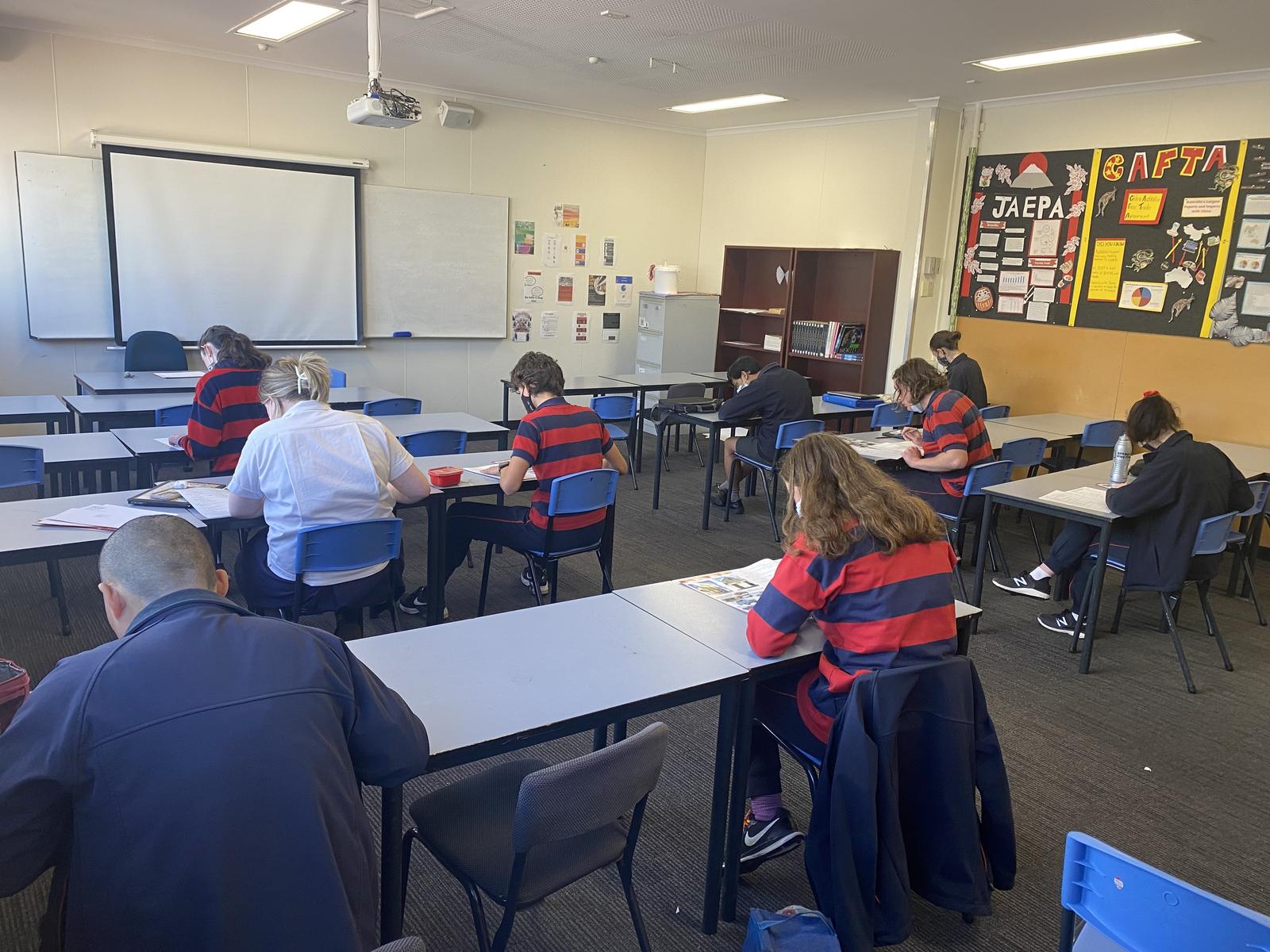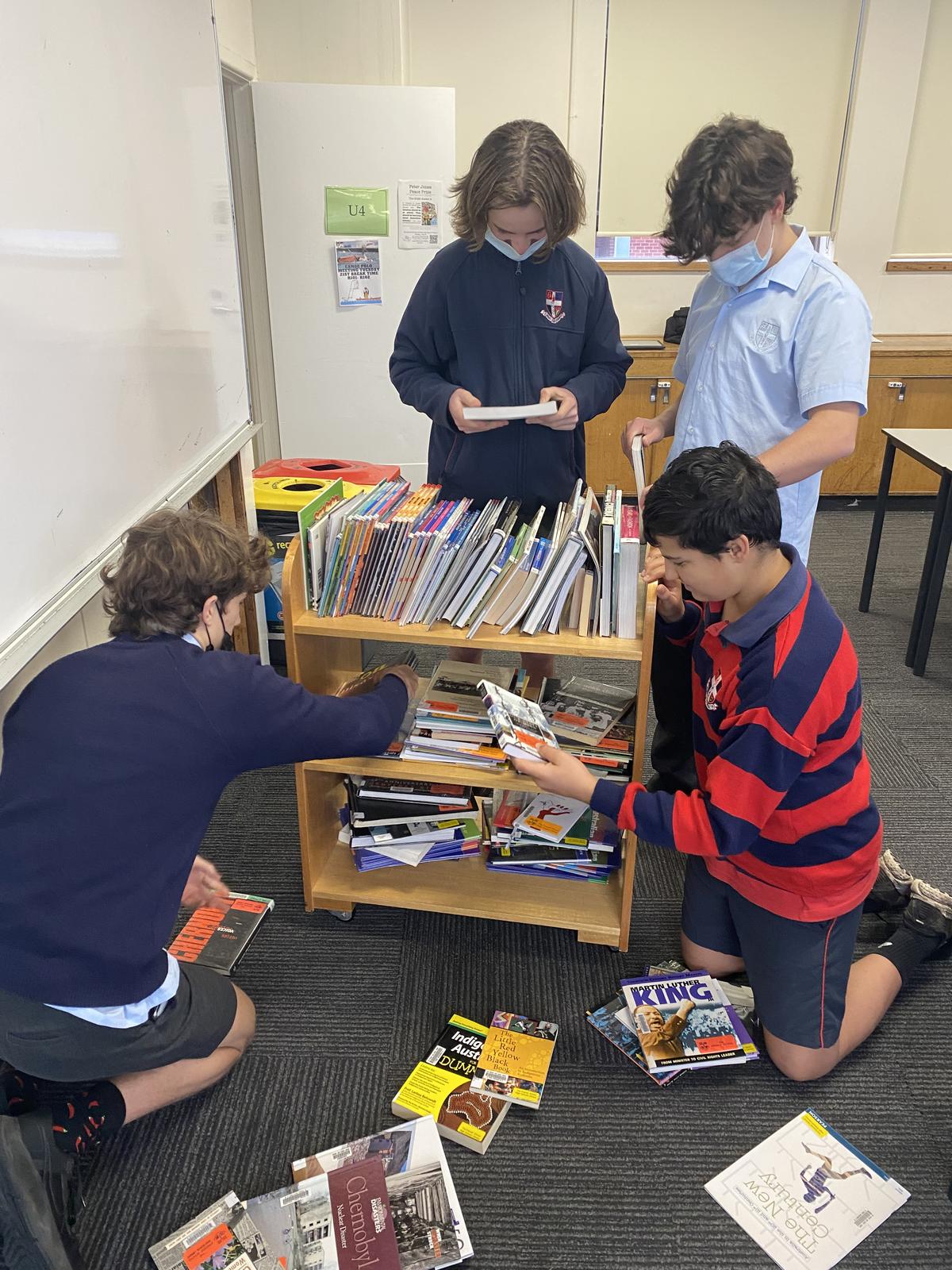Humanities 9/10
HUMANITIES LEARNING AREA

Humanities 9/10
HUMANITIES LEARNING AREA
| 🎓 Course Type | Compulsory |
|---|---|
| ⏱ Hours per week | 4 |
| ✏️ Selection | Automatically included |
| 🧭 Future Pathways | All TCE Level 3 HASS Courses - All IB DP Standard Level Individuals and Societies Courses - All IB DP Higher Level Individuals and Societies Courses |
Over the course of Year 9 and 10 - students study four distinct subject disciplines. These are:
History (Year 9 and 10)
Geography (Year 9 and 10)
Civics & Citizenship (Year 9 only)
Economics and Business (Year 10 only)
Skills that students develop include:
The ability to communicate ideas and information, including descriptions, explanations and evaluations.
The ability to locate, analyse and use appropriate sources of information to support a point of view.
The ability to question and challenge their own views and the views of others.
Making and Transforming the Australian Nation (History)
Students are reintroduced to the key concepts of historical study from Year 8. This unit then explores the social, political, and economic changes that shaped Australia from 1750 to 1918, with particular attention paid to the emergence of modern Australia and Federation. Students will investigate significant events, ideas, movements, and people that influenced Australia's development, as well as the changing experiences of different groups especially, First Nations Australians.
First World War (History)
This unit examines the causes, events, and consequences of World War I, with a particular focus on Australia’s involvement. Students will investigate the war’s global and regional impacts, the experiences of those who lived through it, and how it has been remembered and commemorated.
Biomes and Environmental Management (Geography)
This unit explores the biomes of the world, their characteristics, and their significance as sources of food and fibre, while also examining the environmental functions that sustain life. Students investigate the distribution of biomes, their role in food production and security, and the challenges posed by their alteration. Additionally, the unit delves into the major environmental challenges affecting sustainability, the worldviews that shape human responses, and the strategies used to manage change within specific environments. Through this integrated approach, students gain a deeper understanding of the relationship between biomes, food security, and sustainable environmental management.
Civics and Citizenship
In this unit students learn about the legislative processes through which federal government policy is shaped, developed and implemented. Students study the role of the Australian Constitution in providing the basis for Australia's federal system and the process for constitutional change through a referendum. They explore the influence of a range of media in shaping identity and attitudes to diversity. Students investigate how Australia's international obligations shape Australian law and government. Students discuss the challenges to and ways of sustaining a resilient democracy and a cohesive society in Australia, in our region and/or globally. Students compare the key features of Australia’s system of government compared with at least one other democratic or non-democratic system of government in the Asia-Pacific region
Second World War (History)
In this unit students develop their capacity to identify the causes of key events and developments with a focus on WW2. They use primary and secondary source information to describe, explain and evaluate key events and developments. They study significant events such as the Holocaust as well as why and where Australians fought. They study the experiences and perspectives of Australians during WW2 and in the post war years. They are explicitly taught research, referencing and writing skills.
Building Modern Australia (History)
In this unit tudents study an overview of the impact of migration on Australia. Students study an overview of the significant events, individuals and groups in the women’s movement in Australia, and how they changed the role and status of women. Students study an overview of the significant events and methods in the movement for the civil rights of First Nations Australians and the extent to which they contributed to change.
Economics and Interconnections (Economics and Geography)
In this unit students are introduced to the study of economics including the structure and practice of economies, ways of measuring economies, economic decision making and micro and macroeconomic policies. Students are introduced to the ways that people and places are connected through trade, the reasons that Australia trades with other places including Asia. Students study the impacts of the production and consumption of goods throughout the world and investigate possible strategies to manage sustainability.
Geographies of Human Wellbeing (Geography)
In this unit students are introduced to the concepts connected to geographies of human wellbeing. There is a focus on the wellbeing of Australians in rural and remote environments as well as First Nations Australians. Students explore the wellbeing challenges brought on by population pressures in India as well as wellbeing challenges in China. Students investigate and explore ways that individuals, groups and governments can work towards sustainable human wellbeing outcomes.





